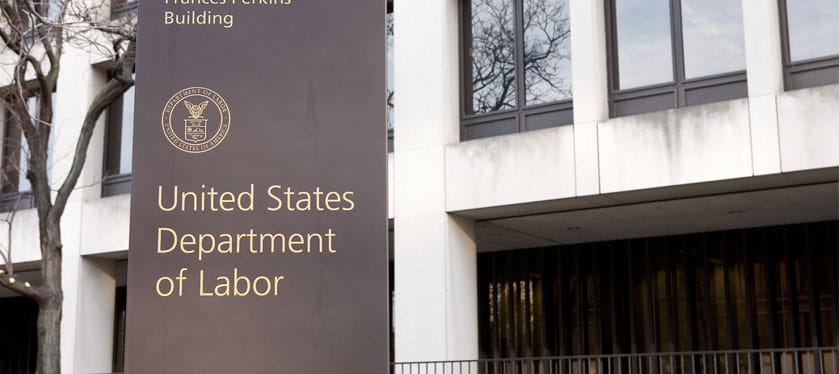Wage and Hour Audits of Employers by the Department of Labor

by Scott H. Wolpert, Esquire
Scott H. WolpertThe Wage and Hour Division of the United States Department of Labor (“DOL”) ensures that employers are in compliance with the Fair Labor Standards Act (“FLSA”). The FLSA requires that non-exempt employees be paid at least the minimum wage for all hours worked and receive overtime pay at time and a half their regular rate of pay for all hours worked in excess of forty hours in a work week. The FLSA also contains child labor provisions, including certain restrictions on hours worked for employees under 16 years of age, as well as prohibition of children from working in hazardous occupations.
When conducting an audit, DOL wage and hour auditors normally inspect employer payroll records for the past two years reviewing both current and former employees. However, if the DOL believes that an employer has willfully violated the FLSA, investigators can review payroll records for three years based on the applicable statute of limitation for willful violators.
In the event of a willful violation of the FLSA, the Secretary of Labor may file suit for back wages and an equal amount as liquidated damages (double damages). The DOL can also enforce civil money penalties of up to $1,000 for willful and repeated violations of the FLSA. In sum, primarily because wage and hour violations typically impact multiple employees, such violation can result in substantial monetary exposure to an employer.
An audit can be announced or unannounced by the DOL. Typically, an audit occurs when an employee formally complains to the DOL about wages and/or hours concerns. However, Wage and Hour sometimes randomly targets specific industries for investigation. In the last few years, the DOL audited a wide array of employers in industries such as agriculture, day care, healthcare, hospitality, restaurants, and temporary staffing agencies.
Issues of specific concern to the DOL, particularly for repeat FLSA violations, include: Failure to maintain records and overtime payment to non-exempt employees; Salaried employees improperly classified as exempt from overtime without assessment of the performed job duties; Unlawful wage deductions for items against employees;
Inaccurate wage payments to immigrant workers and minors who receive less than the minimum wage requirement; Insufficient tips that do not adequately make up the difference between the minimum wage and the employer’s wage obligations.
As soon as possible after receiving notice of the audit, the employee and wage records requested should be gathered, organized and set aside for the auditor’s review. Reviewing and organizing these records before the auditor arrives will permit the employer to identify, and hopefully locate, missing or misfiled records.
In the event of a DOL audit, certain actions should be undertaken by the employer:
Utilize a private interview room that is available only to you and the DOL representative for the purposes of the audit;
Ensure that all required labor law posters are up-to-date, plainly visible, and posted in common areas of the work site;
Review time-tracking devices and/or procedures to determine the accuracy of actual time worked by employees;
Review and organize payroll records, particularly within the last three years.
Employers should note that a very important component of the DOL audit is the initial management interview. This interview sets the tone and direction for much of the audit process. Thorough prior preparation for this interview will demonstrate to the auditor that the employer is aware of its obligations under the FLSA and has been compliant.
Additionally, the DOL auditor is less likely to identify problem issues if the individual being interviewed can adequately and accurately answer the auditors’ questions. The managerial employee should consider the following as part of the necessary thorough preparation for the management interview:
Familiarity with all job titles maintained;
Ability to explain which job categories are being treated as exempt from overtime and the basis for those exemptions;
Ability to explain any shift rates, how time is recorded, how overtime is paid and whether any practices such as rounding or automatic deductions are done;
Knowledge of how employee wage garnishments are calculated, maintained and paid;
Knowledge of whether and how new employees are paid for orientation, training time and medical tests; and
Familiarity with the company’s policy and forms relating to the FLSA and the Family and Medical Leave Act (“FMLA”).
The auditor will interview employees from several job categories, particularly those classified as exempt from overtime. Unlike many other government reviews, neither a supervisor nor the employer’s legal counsel may participate in individual employee interviews.
Depending upon the scope of the DOL audit, a closing conference may follow immediately after the employee interviews. Alternatively, the closing conference may be scheduled a few days after the auditor has completed the on-site visit.
If you require assistance with a DOL audit or would like assistance with conducting a self audit or any wage issue, please contact Scott H. Wolpert at 215-540-2656 or swolpert@timoneyknox.com.





